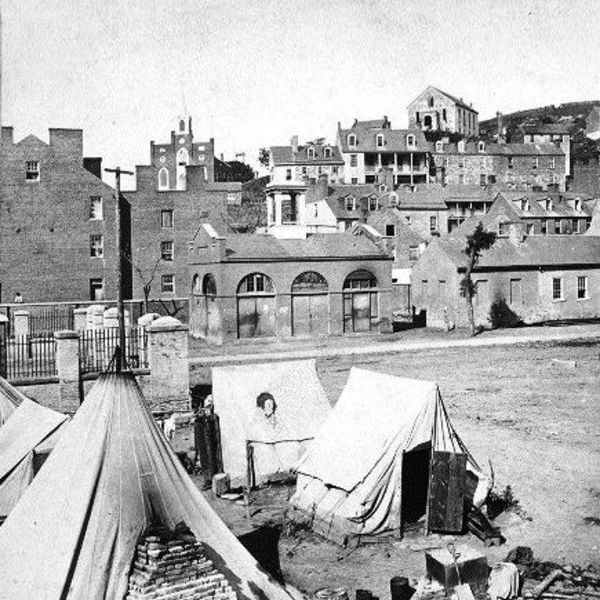Many believe that American colonists selected Africans to enslave because they felt that they were inferior and/or barbaric. This belief is not only false, but Africans were respected and thought to be very intelligent with an organized form of government. The selection of Africans for slavery was for more practical reasons. The belief that Africans were inferior, barbaric, and in need of shackles was used to justify and continue the practice of slavery in America.
Africans were enslaved in America for hundreds of years. Despite attempts to end slavery by abolitionists and stop the shipment of African slaves slavery was upheld for economic reasons, fear, and to keep the North and South from civil war. The Antebellum period in American history is normally considered as pre-Civil War and post-War of 1812. It is marked by a rise in the Abolitionist movement and the increased tension between abolitionists and those that were pro-slavery. This time period is also marked by the economic boom in the North due to the beginnings of the Industrial Revolution, and the economic boom in the south due to the cotton gin. These aspects of the Antebellum period greatly affected the African American community.
Africans were selected and imported as slaves mainly for economic and demographic reasons. It was created to supply much-needed labor for the colonists, not because they were deemed inferior. Over time slavery became associated with the dark skin of Africans, which led to colonists feeling of superiority and racism. The basis for African enslavement is that it was a lot easier logistic wise to import African slaves than it was to import slaves from other continents.
The buying and selling of slaves weren’t foreign to Africans. Europeans were already familiar with the voyage to Africa. They originally tried to use Native Americans as slaves but discontinued because they were dying of over-work and diseases. Native Americans were replaced with Africans because they were immune and already exposed to European diseases. Another reason Africans were selected for enslavement is because unlike Native Americans, Africans were unfamiliar with the land and did not have friends or family who knew the land. This prevented them from resisting, revolting, or escaping. The natural talents of Africans met the needs of the colonists. Africans, unlike the colonists, were experienced in agriculture, livestock and raising crops. The colonists quickly became dependent on the cheap labor of African slaves.
The system of slavery continued for so long because America’s economy was dependent on slave labor and because of fear. The idea of slavery itself did not sit so well with many Americans, but it was so much a part of their lives that they felt as though they could not do without it. America also did not know what they would do with the freed slaves if slavery were to be abolished. A huge reason slavery lasted so long, over 400 years is that it was the basis of the South’s economy. The South’s plantation economy was dependent on slave labor. The abolishment of slavery was very disconcerting for southerners. To stop a possible split between the North and the South, the founding fathers continued to delay abolishment in order to appease the South and avoid dissension. This did not help however because the South still seceded in 1861 causing the civil war. Slavery was long lasting because of how cheap it was. Technological advances such as the cotton gin, and Europe’s increase in demand for cotton textiles increased the South’s want for slaves.
The Antebellum period of slavery in America was predominantly marked by the rise of the Abolitionist movement, even in the African-American community. The Antebellum period is also marked by the Haitian revolution, which prompted and empowered African Americans to vocally and actively fight for their freedom. Many sued or purchased their freedom. During this period there was an increase in the amount of free blacks. Blacks settled in city areas creating an “African-American culture” and community. There was a rise in African American churches and ministers and a rise in the establishment of fraternities. A majority of these free blacks lived in poverty, but many despite racism were able to land industrial jobs or even start their own businesses. During this period, it was very important to unite with their families in the African American community. The rise in African American churches strengthened their sense of community, individuality, and their uniqueness.
Africans were transported as slaves for practical reasons that eventually led to “justified” ill-treatment of blacks in America. Despite attempts at abolishing slavery and criminalize the shipment of African slaves, slavery continued to last for over 400 years due to America’s economic dependence on slave labor. Slavery and the eventual fight for freedom impacted and shaped African-American communities and culture. Despite all of this racism and segregation, it strengthened and became an integral part of African-American lives.




















